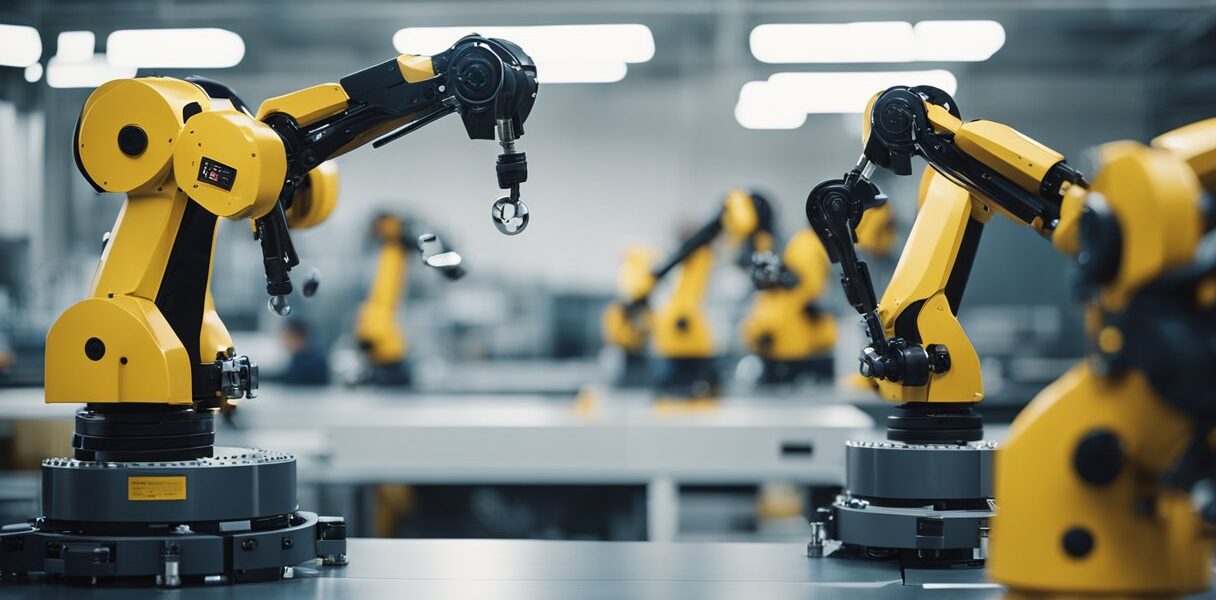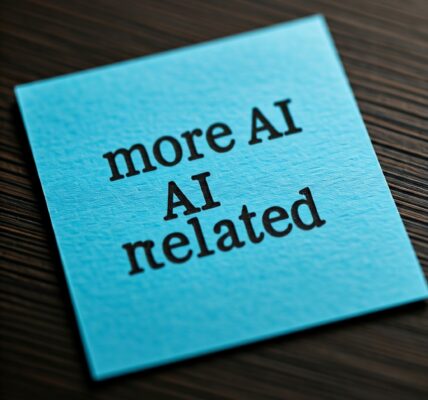Job Killer or Job Creator? Addressing the Impact on Employment
AI & Automation are changing the way businesses operate. Many people worry that these technologies will lead to job loss and unemployment. Yet, AI & automation also have the potential to create new jobs and opportunities in areas that did not exist before.

The job market is evolving rapidly due to advancements in artificial intelligence. While some roles may become obsolete, new positions are likely to emerge, especially in tech and support sectors. As companies adopt these technologies, they will need skilled workers to manage and maintain them.
Addressing fears about job displacement is important. With proper training and education, workers can adapt to changes in the job market and take advantage of the opportunities AI brings. Embracing this shift can lead to a more dynamic and innovative workforce.
The Impact of AI and Automation on the Job Market

AI and automation are changing the job market in significant ways. These changes include shifts in the types of jobs available, the creation of new job categories, and the need for workers to adapt through upskilling and reskilling.
Shifting Job Landscape
As AI and automation grow, some jobs will disappear while others will evolve. Industries like manufacturing and retail may see declines in manual labour roles. These positions are often replaced by machines and automated processes.
However, new opportunities will arise in technology-driven fields. Jobs in data science, AI development, and cybersecurity are increasing, requiring different skills than traditional roles. The shift emphasizes the importance of adaptability in the workforce.
Rise in New Job Categories
New technologies create job categories that did not exist before. Positions like AI trainers, tech support for automation systems, and data analysts are examples of this trend. These roles focus on managing and improving automated processes.
The demand for creative and strategic jobs is rising. Roles that require human intuition, emotional intelligence, and complex decision-making are likely to grow. This change highlights the need for workers to be aware of emerging fields and opportunities.
Upskilling and Reskilling Imperatives
To remain employable, workers must focus on upskilling and reskilling. Lifelong learning is essential as the job market evolves. Workers must adapt to new technologies and processes to stay relevant.
Employers are increasingly investing in training programs that help their staff gain new skills. This investment benefits both workers and employers, as it increases job satisfaction and productivity. Addressing the skills gap is vital for future success.
AI and Automation Across Various Industries

AI and automation are changing many industries. They bring tools, robots, and smart technology that can improve how work gets done. Here is a look at how these changes affect different sectors.
Manufacturing and Robotics
In manufacturing, robots enhance production efficiency. These machines can perform repetitive tasks, such as assembling parts or welding. They work faster and more accurately than humans in many cases.
Many factories now use AI tools to monitor equipment performance. This helps predict when machines might fail, reducing downtime. Manufacturers are also turning to augmented reality (AR) for training workers and guiding assembly processes.
Robots do not simply replace workers. They enable employees to take on more complex roles. As a result, the focus shifts from routine tasks to problem-solving and innovation.
Healthcare Advancements
The healthcare sector is seeing great advancements due to AI. Smart systems help doctors diagnose diseases earlier and more reliably. AI can analyse medical images faster, leading to quicker treatment decisions.
Robotics also play a key role in surgeries. Surgical robots assist surgeons, allowing for more precision during operations. These technologies can lead to less invasive procedures and faster recovery times for patients.
Furthermore, AI chatbots help with patient support. They can answer questions and schedule appointments 24/7. This allows healthcare professionals to focus on more critical tasks.
Retail and Customer Service Evolution
In retail, AI is transforming how stores operate. Smart systems analyse customer data to offer personalised shopping experiences. This can increase sales and customer satisfaction.
Self-service kiosks and automated checkouts are becoming more common. These tools streamline the shopping process and reduce wait times. Employees may then spend more time assisting customers in other ways.
AI chatbots are also improving customer service. They provide quick responses to inquiries, freeing up staff for more complex issues. Retailers must adapt to remain competitive in this changing landscape.
Logistics and Transport Efficiency
Logistics and transport are also experiencing significant changes. AI optimises supply chains by predicting demand and managing inventory. This leads to greater efficiency and reduced costs.
Autonomous vehicles are being tested for delivery and transport. These vehicles can operate without human drivers, potentially lowering transport costs. They can also reduce traffic congestion and improve safety on roads.
Drones are making deliveries faster, especially in urban areas. Companies use them to reach customers in hard-to-access locations. As technology improves, the logistics sector will become even more efficient and responsive.
Enhancing Human Potential with AI

AI technology can support human workers by improving skills and fostering creativity. By partnering with AI, individuals can become more productive and innovative in their roles.
Complementing Human Skills with AI
AI can enhance human skills by taking on repetitive tasks. This allows workers to focus on more complex tasks that require critical thinking and creativity. For example, in data analysis, AI can process vast amounts of information quickly. This means that workers can interpret data, draw insights, and make decisions faster.
Collaboration between AI and humans in the workplace can lead to better results. By using AI tools, employees can increase their productivity and efficiency. They can also develop new skills that are valuable in an evolving job market.
AI in Creative and Complex Problem-Solving
AI can contribute significantly to creative and complex problem-solving. It can generate new ideas by analysing patterns and trends that humans might overlook. For instance, in design, AI can suggest innovative concepts based on existing styles and preferences.
When working on complex projects, AI can offer alternative solutions and approaches. This support allows employees to explore various options and make better-informed decisions. The result is a more dynamic workspace where creativity thrives alongside advanced technology.
The Importance of Emotional Intelligence and Empathy
In a world increasingly influenced by AI, emotional intelligence and empathy remain essential human traits. Machines may process data, but they cannot truly understand human emotions or build relationships.
Workers with strong emotional intelligence can adapt to changes brought by AI. They can foster collaboration and create an environment where team members feel valued. This strengthens workplace relationships, leading to improved team performance and satisfaction.
Empathy also plays a crucial role as AI continues to advance. By understanding and responding to colleagues’ feelings, workers can better navigate challenges. This balance between technology and human connection is vital for success in the future workplace.
Policy, Ethics, and the Future of Employment

Policies and ethical considerations shape how society adapts to AI. Understanding these factors is crucial for navigating the future of work. They influence how technology integrates into various industries and affects employment.
Government’s Role in Technological Transition
Governments must take an active role in guiding the transition to new technologies. They can create policies that prepare workers for changes due to AI. This includes funding online courses that teach skills necessary for future jobs.
Job creation must be part of the plan. Generative AI and other technologies can lead to new job roles like software developers, AI trainers, and data scientists. Governments should collaborate with industries to ensure training aligns with market needs.
Furthermore, government regulations can protect workers’ rights. Ensuring fair wages and job security can help reduce anxiety about job loss. Engaging with community stakeholders is essential for balanced policy development.
Redefining Employability and Work Ethics
The changing job landscape requires a rethinking of employability. Skills in demand will evolve. Workers must adapt to an environment where technical and soft skills are key.
AI ethics specialists play a role in shaping how technology affects work. They can advocate for ethical practices that keep human interests at the forefront. Understanding AI’s impact on work ethics will be fundamental as AI becomes more integrated.
Companies should foster a culture that values continuous improvement. Encouraging employees to reskill can lead to personal and organisational growth. This proactive approach will help maintain trust and promote a healthy work environment.
Continuous Learning in the Age of AI
Embracing continuous learning is critical in an AI-driven world. Workers who invest in education will remain competitive. Access to online courses can help individuals stay updated on necessary skills.
AI will create unique job opportunities. However, traditional roles may diminish, requiring workers to adapt. Lifelong learning encourages flexibility and readiness for change.
Organisations must also commit to employee development. Offering training programmes can help bridge the skills gap. This investment not only benefits employees but can also lead to employment growth for the company.

































